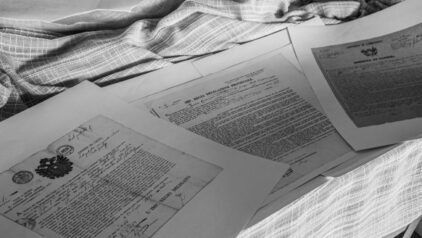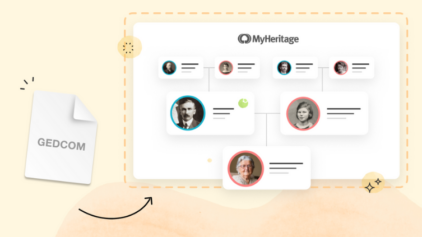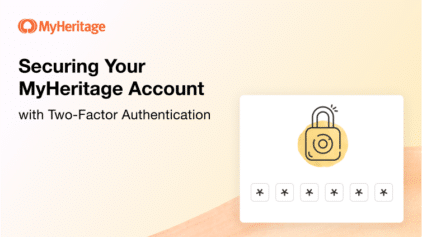We could see tax lists in Norway, but the person you have searched for will also get a message that someone checked them!


 This article is a guest post by Dick Eastman, one of the most recognized names in the genealogy world. A pioneer geneablogger, he uses technology to improve your family history experience.
This article is a guest post by Dick Eastman, one of the most recognized names in the genealogy world. A pioneer geneablogger, he uses technology to improve your family history experience.
Genealogists often face conflicting requirements. We want to publish our own family information online in hopes that others will see it and recognize connections to their own family. Those other genealogists then can contact us, and we can collaborate to expand the known family trees of each of us. The problem is that today’s news is full of alarming articles about identity theft, fraud, and similar illegal acts. While some of the news articles describe real threats, others are published as “scare tactics” that magnify smaller issues to sound as if there are imminent dangers for all of us. Alarmist articles often strike unnecessary fear into the hearts of those who do not understand the difference between major and minor threats.
Fears of identity theft from public genealogical information often are irrational. Identity thieves obtain personal information about living people and rarely, if ever, get that information from ancestral data published online. The most common way thieves lift your personal information is by stealing your wallet, not from a website. (Reference: The Most Common Causes of Identity Theft and How to Protect Yourself.)
Another factor contributing to the fear of publishing genealogy information online is a misunderstanding of the various laws involved. For instance, many people believe there are strict privacy laws concerning access to genealogy information; however, there are very few such laws in the English-speaking countries of North America and Australasia. There are, however, various guidelines and occasional local laws concerning specific pieces of information. These should not be mistaken for wide-ranging restrictions enforced by national governments. European countries generally have stricter laws, but because one country considers something to be private does not mean that it must stay private everywhere else. In other words, no laws can protect a person’s privacy universally.
First, dead people do not have a right of privacy. Almost all laws dealing with privacy are limited to living people. Information about deceased individuals generally is not restricted by legislation. Likewise, heirs have no right to claim retroactive privacy for their ancestors.
In the U.S. and Canada, there is no restriction on publishing dates and places of birth, marriage, and similar facts online. Such facts are considered to be public domain, not private. Publishing such information is not an invasion of privacy in North America nor in most other English-speaking countries. However, European countries have a number of such restrictions.
Another interesting twist is the publishing of information obtained from death certificates. The certificate only serves as legal proof that someone has died and provides the supporting facts of death. Such facts typically include the date, time, and place of death and may state a cause of death. These are legal facts, certified to be correct.
Other information often found on death certificates includes the name of a spouse, parents, or children. A birth date and place may also be included. However, those supplemental facts are not considered to be legally proven as the information was provided from secondary sources and was never verified as being correct.
Privacy may be expected when dealing with offensive or objectionable facts. However, even those laws and their interpretation are changing rapidly. Only a few years ago, publishing a hint about someone’s homosexuality could be cause for a lawsuit as an invasion of privacy. It is difficult to imagine such actions today. Thanks to Caitlyn (formerly Bruce) Jenner, even transgender actions are no longer considered to be private information. Publishing such information may be offensive to some of your relatives but will not result in legal actions. Of course, rules of “good conduct” go far beyond the minimum legal requirements.
Another interesting note is that privacy laws treat private citizens and public figures differently. The average citizen may expect some privacy concerning his or her choice of associates, membership in clubs and organizations, or even income. However, politicians, movie stars, sports personalities, and similar public figures do not enjoy the same levels of privacy.
NOTE: This expectation of privacy is not universal. Sweden, Norway, and Finland publish all income tax returns of all citizens every year, and the citizens don’t seem to mind. Anyone in those countries can go online to find the income of neighbors, friends, relatives, or co-workers. By contrast, U.S. law prohibits releasing anybody’s tax information.
These differences in national laws create a dilemma for those planning to publish information on the World Wide Web. Which laws apply to a genealogist in Canada who places information on a website hosted on servers in the U.S. with backup servers in Singapore, all providing information being read by a distant cousin in Australia? In short, there are no quick and easy answers to such questions.
Many of the online web services used by genealogists (MyHeritage, FamilySearch, and others) have guidelines that are more restrictive than the laws of any one nation. Such services usually do not allow for publishing the names and other personal information of living people, even though the laws in many countries do allow publishing such information.
In short, genealogists shouldn’t worry much about privacy laws but perhaps should be guided by common sense and respect for their families’ preferences. Just because Caitlyn Jenner was open about her sex change operation doesn’t mean that you should be equally open about a similar operation by your cousin. The prudent genealogist who hopes to obtain more family information from relatives in the future does not alienate them by sharing information that they prefer to be kept private. Legal or not, a genealogist should always respect the rights and desires of others.










Kathleen
September 7, 2015
Thank you for this thought guidance!